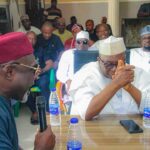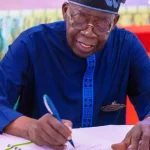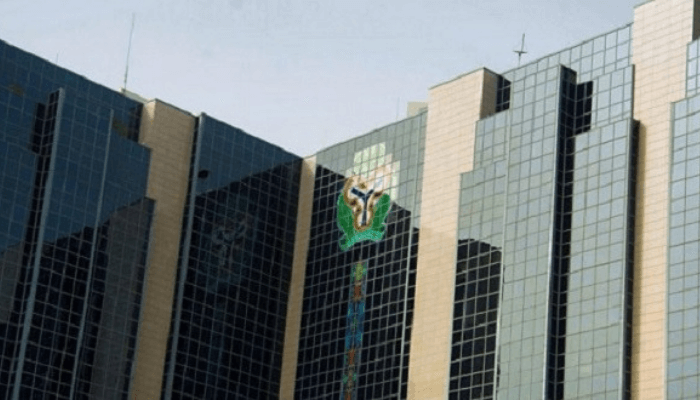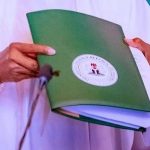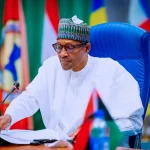The year 2023 has been described not only as a year for important elections but a year where higher interest rates will persist amid high inflation and weaker naira, analysts at Access Pensions said.
Nigeria heads to the sixth general election cycle since the return to democratic rule in 1999 and unlike the prior two-way contests, the 2023 polls will likely be a three-way contest among Bola Ahmed Tinubu, the candidate of the ruling All Progressives Congress (APC); former Vice President Atiku Abubakar of the Peoples Democratic Party (PDP) and Peter Obi of the Labour Party (LP)..
The analysts said, “Whoever emerges as president in the February 2023 polls faces a loaded in-tray, as decisive actions are required on several burning issues: insecurity, petrol subsidies and on the exchange rate system to name a few.
“From an economic and financial market perspective, we think 2023 is likely to be a tale of two halves with the first half focused on figuring out the identity of Nigeria’s next political leadership team and the latter part about figuring out their policy direction over the next four years.
“Overall, we believe that the investment landscape in 2023 will be shaped by global central banks pulling the plug on the interest rate tightening cycle over 2023 and oil prices will likely recede from the conflict-supported levels towards an average around $70-80/bbl.
“Nigeria’s oil production is on track towards 1.5-1.7mbpd, a recovery from the depressed levels (sub 1mbpd) of 2022 as pipeline security improves”.
Significantly, the change in political leadership post the 2023 elections will provide the leeway for inflationary adjustments to petrol prices and the exchange rate and that a large fiscal deficit will continue to require higher domestic borrowings but without the option of Ways & Means financing from the CBN.
The analysts in a report released at the weekend titled, ‘Nigeria 2023 Outlook: A Game of Two Halves for 2023 as Nigeria Reaches another Political Inflection Point; said unlike in 2015, the winner will likely be facing a much higher oil price environment but will need to tackle a host of issues across insecurity, a growing debt burden, burdensome petrol subsidies and a broken exchange rate system.
“In between the election and transition, we expect economic activities to muddle through the year and see real GDP growth around at 33.5% in 2023, flattered by a recovery and see real GDP growth around at A 3.5% in 2023, flattered by a recovery in oil output from the depressed theft driven levels of 2022 and stabilisation in the non-oil sector.
“Against this backdrop and clarity on the political scene after the elections, we think the CBN could look to improve dollar supply within the official segment and tolerate some weakening in the IE window exchange rate towards levels north of N500/S.
“In the face of potential adjustments to petrol prices and persisting naira weakness, we expect inflation to remain elevated over 2023 (18%-20%) which will likely see the CBN retain a hawkish stance on interest rates over the year”.
In terms of investment opportunities, the analysts said they see a combination of inflation remaining sticky at elevated levels (18-20%), the potential for further naira adjustments and large government borrowing requirements with limited fiscal recourse to CBN financing as suggestive of a high interest rate environment over 2023.
“After two years of unorthodox monetary policy, we expect the CBN will look to tighten policy to bring down inflation and stabilise the currency by raising the returns for holding naira’.
Beaming the searchlight into the equities market, they said while a smooth transition of power is positive for investment outlook, they expected offshore investor appetite for Nigerian equities to remain weak pending a credible adjustment in the naira and increased flexibility in the exchange rate system.
This leaves equity market outlook, as has been the case over the last three years, dependent on the activities of domestic institutional investors.
While the pick-up in interest rates over the last six months will work to soften appetite for the asset class, continued attraction towards bellwether cyclical themes around financial inclusion, interest rates and construction will support the overall market.
“As in 2022, we think the dollar repatriation trade will continue to support valuations for dual-listed stock while consumer names may continue to struggle under the weight of an inflationary environment”.
On fiscal policy, the last budget of “ the President Muhammadu Buhari tenure follows the trend of debt-powered fiscal expansionism with a record expenditure plan set at N21 trillion.
To fund the record outlay, the FGN projects total revenues at N9.7 trillion split across oil (N1.92 trillion) and non-oil (N8.9 trillion) predicated on a benchmark crude price of $70 per barrel and production levels of 1.69mbpd.
Pending a clean break from the petrol subsidies currently funded via the crude-for-refined product swap, we think revenues are likely to tail projections, as such financing requirements will remain large in the face of potentially reduced funding from the CBN.


